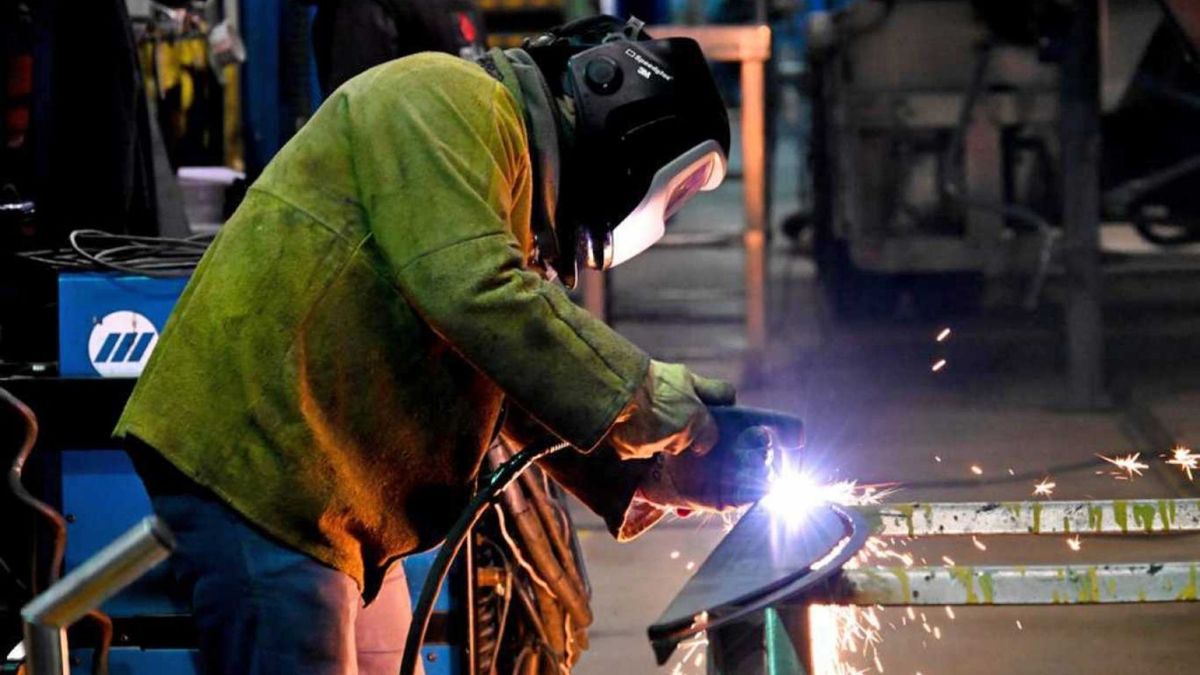According to a report from the Buenos Aires Ministry of Production to which Télam agreed, in the previous administration 31 projects of industrial clusters were started, while the current management has – in its first two years and in the context of the pandemic – a total of 33.
“We came to plant industrial parks in the province of Buenos Aires. Today they are a true state policy, after years in which they were abandoned because there was no promotion for industrial development,” Kicillof said recently.
According to Law 13,744, the Production portfolio must regulate the creation and operation of industrial groups in the Buenos Aires territory.
At present, there are still cases in which the industries settled in a planned manner with those that developed spontaneously, and did not conform the groupings within the framework established by the Law.
Thus, while the establishment of industries without adequate planning can produce various negative consequences for the population, particularly in areas close to cities and urban centers, the establishment of groups legally generates social and economic benefits.
Among the advantages are the correct use of the land, the security of the property and surrounding areas, (due to the availability of services and infrastructure for fire prevention, the proper handling of hazardous materials, or pollution control) or even the reduction of logistics costs, the link between producers, as well as the availability of agencies and entities specialized in technical and technological assistance for the production and training of human resources.
In this sense, Minister Augusto Costa told Télam that “having an industrial park policy is something that the provincial government proposed as soon as it took office, since it is a very important step for industry and production.”
“Industrial parks allow companies to develop economies of scale with significant benefits in terms of infrastructure and logistics,” the official explained, and indicated that “regularizing the situation of industrial parks is essential for the economic reactivation of the province.”
In the Buenos Aires territory there are currently 90 groups with final approval decree and another 85 that must complete their processing. In total, there are 175 industrial groups, and the Executive Branch specified that they are working to increase that number.
In the first two years of management, Kicillof signed and delivered four decrees to regularize the Ezeiza Industrial Pole, the Moreno 1 Industrial Park, the Julio Steverlynck Luján Industrial Park and the San Martín Mixed Planned Industrial Sector.
Having the decree implies having the definitive authorization to function regularly and with the necessary infrastructure for the proper functioning of the installed companies.
From that moment on, the lots can be notarized, which is relevant for companies that wish to obtain loans or join national and provincial programs that benefit SMEs and the sector in general.
In the Executive Branch they stressed that the policy of promotion and strengthening of industrial groups is one of the “fundamental” tools for productive development in the province of Buenos Aires.
“Land management through the location of industries in industrial groups, which are properties enabled for this purpose and which entails many benefits for companies, is one of our lines of work in relation to the industry,” they pointed out.
It is that the industrial groups allow to link with the companies that produce goods and services, with the union entities and with the municipal, provincial and national governments.
For this reason, the province works with the Production Secretariats of the 135 municipalities, and with all the provincial organisms that intervene in the regularization of industrial groups.
“We work to generate the necessary tools so that the groups can regularize their situation, carrying out all the necessary steps to finalize the procedures, providing technical assistance for the groups and for the companies that are based in them,” they described in the Government, and affirmed that they understand that this is the way “to consolidate an effective territorial ordering throughout the Buenos Aires territory.”
In this sense, for example, the productive portfolio and ARBA recently intervened to obtain the cadastral registration of the Tandil industrial park, which has 65 companies, in a process that was completed after 20 years of waiting.
By completing that step, a total of 15 companies can now count on lot deeds.
In this regard, Cristian Girard, director of the Buenos Aires Revenue Agency (ARBA), pointed out to this agency that “from the moment Kicillof took office as governor, we carry out an articulated work between all the areas of the provincial State to rebuild the productive fabric , to reactivate the economy and rebuild people’s income, adding value to production and employment, and this has to do with that purpose “.
At the same time, between 2019 and this year, 33 new park creation projects were presented, thus surpassing the projects that were started in the four years of the previous administration, which were 31; and 15 previous provisions were approved, while in the same period of the previous management only 10 were approved.
“This shows that incentives and industrial interests are perfectly aligned beyond the health situation,” they highlighted in the Government, and indicated that in 121 municipalities “there is at least one industrial grouping project.”
Among the objectives of the Kicillof government is that by the end of his mandate there is an industrial grouping in each of the 135 districts that make up the territory.
With this goal in mind, the Buenos Aires government will soon launch the ArriBa Parques program with which it will grant financing of up to $ 30 million to carry out intramural works, as well as to carry out the necessary studies for the regularization of the clusters.
The intention, they indicated in the Government, is to ensure that the industrial activity is developed respecting, among others, the environmental safety measures determined by the competent authority in the matter.
ArriBa Parques will provide financial assistance through non-reimbursable contributions of up to $ 30 million for the creation, development, regularization and strengthening of industrial clusters.
Source From: Ambito
David William is a talented author who has made a name for himself in the world of writing. He is a professional author who writes on a wide range of topics, from general interest to opinion news. David is currently working as a writer at 24 hours worlds where he brings his unique perspective and in-depth research to his articles, making them both informative and engaging.




